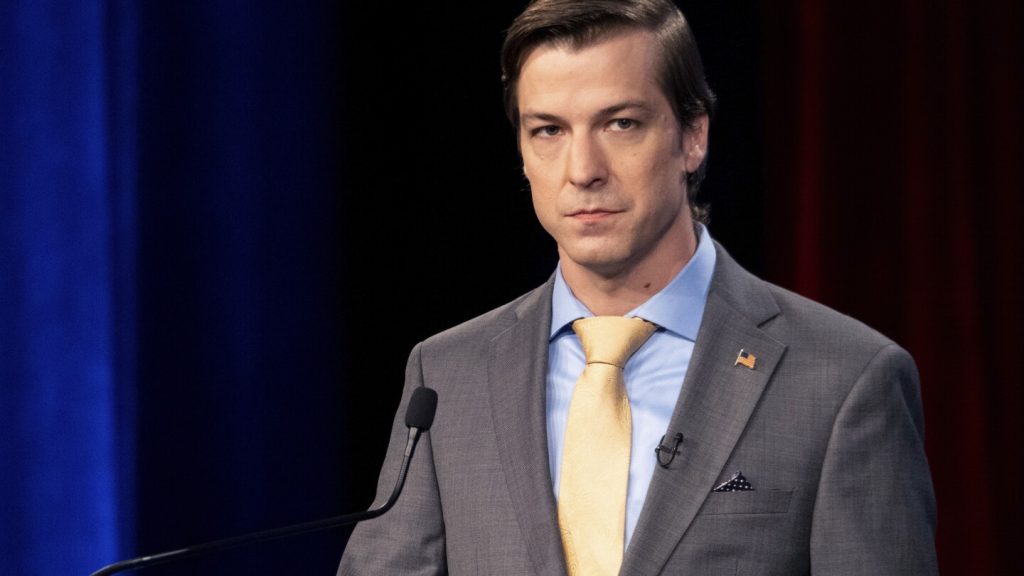The Libertarian Party recently nominated activist Chase Oliver for president, rejecting former President Donald Trump and Robert F. Kennedy Jr. after they each spoke at the party’s convention. Trump, who appeared at the convention on Saturday night, was repeatedly booed during his speech and did not receive the endorsement he had hoped for. Kennedy, on the other hand, received a friendlier reception when he spoke on Friday and attacked both Trump and Democratic President Joe Biden for their handling of the COVID-19 pandemic. The Libertarian Party’s decision to nominate Oliver is gaining attention this year, as the rematch between Trump and Biden could hinge on small vote margins in contested states.
Third parties in U.S. presidential elections have rarely been competitive, with the Libertarian candidate four years ago only winning 1% of the vote. However, the party’s decision to nominate Oliver is significant given the current political climate. Oliver, an activist from Atlanta who has previously run for the U.S. Senate and U.S. House from Georgia, has outlined his campaign platform on major cuts to the federal budget, the abolition of the death penalty, and the closure of overseas military bases. His campaign website also emphasizes ending military support to Israel and Ukraine. The Libertarian Party’s platform prioritizes small government and individual freedoms, with policy positions that can be viewed as liberal, conservative, or neither.
Kennedy’s support for the Libertarians and his speech at the convention could have helped him gain ballot access in all 50 states, which is a significant hurdle in qualifying for the first presidential debate in June hosted by CNN. Despite not receiving the party’s nomination, Kennedy’s presence at the convention highlighted the division within the Libertarian Party on which candidate to support. Trump’s appearance at the convention and his lack of endorsement underscored the challenges he may face in garnering support from third-party voters in the upcoming election. However, his decision to speak before an unfriendly crowd was praised by his Republican allies.
Oliver’s nomination as the Libertarian Party’s presidential candidate marks a significant moment in the 2024 election cycle. With the rematch between Trump and Biden looming, the Libertarian Party’s decision to nominate Oliver could have an impact on the outcome of the election, particularly in contested states. Oliver’s call for unity and forward movement for liberty reflects the party’s commitment to small government and individual freedoms. As the campaign progresses, Oliver’s platform on federal budget cuts, the death penalty, and military support will likely become key issues in the upcoming election.
The attention on the Libertarian Party’s decision to nominate Oliver for president highlights the growing interest in third-party candidates in the current political landscape. With the potential for small vote margins to determine the outcome of the election, the Libertarian Party’s choice could have far-reaching implications. Oliver’s background as an activist and his previous experience running for political office demonstrate a commitment to his campaign platform and the values of the Libertarian Party. As the election season unfolds, it will be important to watch how Oliver’s candidacy impacts the broader political conversation and the overall race for the presidency in 2024.


